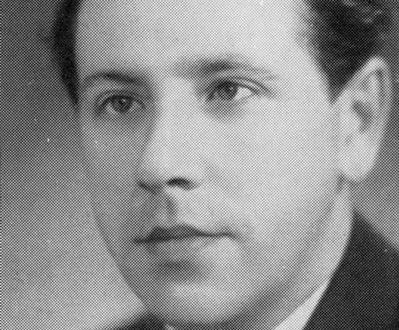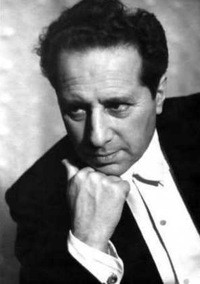
Clemens Krauss (Clemens Krauss) |
Clemens Krauss

For those who were familiar with the art of this outstanding Austrian conductor, his name is inseparable from that of Richard Strauss. Kraus for decades was the closest friend, comrade-in-arms, like-minded and unsurpassed performer of the works of the brilliant German composer. Even the difference in age did not interfere with the creative union that existed between these musicians: they met for the first time when the twenty-nine-year-old conductor was invited to the Vienna State Opera – Strauss was sixty years old at that time. The friendship that was born then was interrupted only with the death of the composer …
However, the personality of Kraus as a conductor, of course, was not limited to this aspect of his activity. He was one of the most prominent representatives of the Viennese conducting school, shining in a wide repertoire, which was based on romantic music. Kraus’s bright temperament, graceful technique, external impressiveness appeared even before the meeting with Strauss, leaving no doubts about his brilliant future. These features were embodied in particular relief in his interpretation of the romantics.
Like many other Austrian conductors, Kraus began his life in music as a member of the court boys’ chapel in Vienna, and continued his education at the Vienna Academy of Music under the direction of Gredener and Heuberger. Soon after completing his studies, the young musician worked as a conductor in Brno, then in Riga, Nuremberg, Szczecin, Graz, where he first became the head of the opera house. A year later, he was invited as the first conductor of the Vienna State Opera (1922), and soon took the post of “General Music Director” in Frankfurt am Main.
Exceptional organizational skills, Kraus’s magnificent artistic flair seemed to have been destined for directing the opera. And he lived up to all expectations, heading the opera houses of Vienna, Frankfurt am Main, Berlin, Munich for many years and writing many glorious pages in their history. Since 1942 he has also been the artistic director of the Salzburg Festivals.
“In Clemens Kraus, an exceptionally impressive and interesting phenomenon, the features of a typical Austrian character were embodied and manifested,” the critic wrote. and innate nobility.
Four operas by R. Strauss owe their first performance to Clemens Kraus. In Dresden, under his direction, “Arabella” was first performed, in Munich – “Day of Peace” and “Capriccio”, in Salzburg – “The Love of Danae” (in 1952, after the death of the author). For the last two operas, Kraus wrote the libretto himself.
In the last decade of his life, Kraus refused to work permanently in any one theater. He toured a lot around the world, recorded on Decca records. Among the remaining recordings of Kraus are almost all the symphonic poems by R. Strauss, the works of Beethoven and Brahms, as well as many compositions of the Viennese Strauss dynasty, including The Gypsy Baron, overtures, waltzes. One of the best records captures the last traditional New Year’s concert of the Vienna Philharmonic conducted by Kraus, in which he conducts the works of Johann Strauss the father, Johann Strauss the son and Joseph Strauss with brilliance, scope and truly Viennese charm. Death overtook Clemens Kraus in Mexico City, during the next concert.
L. Grigoriev, J. Platek





